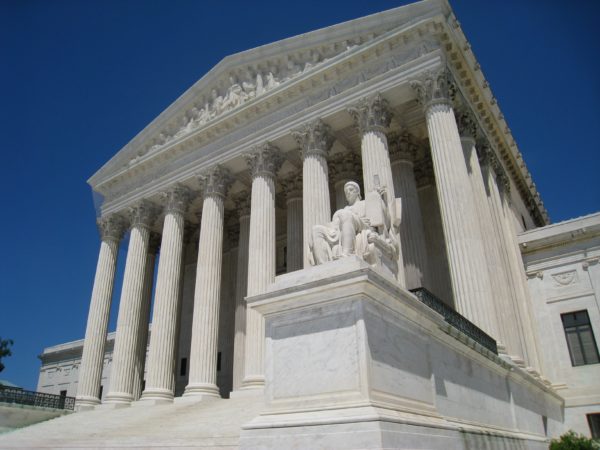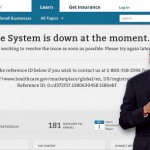Supreme Court Decision Changes New Jersey’s Political Landscape
 Today’s U.S. Supreme Court decision in Janus v. American Federation of State, County, and Municipal Employees, Council 31 is a game changer nationally and particularly in New Jersey where teachers and government workers pay checks are dinged significantly for union dues that ends up paying seven figure salaries to union executives and for political campaigns supporting politicians who do not deliver. (More on those lying politicians next week when the NJ School Funding Formula is finalized)
Today’s U.S. Supreme Court decision in Janus v. American Federation of State, County, and Municipal Employees, Council 31 is a game changer nationally and particularly in New Jersey where teachers and government workers pay checks are dinged significantly for union dues that ends up paying seven figure salaries to union executives and for political campaigns supporting politicians who do not deliver. (More on those lying politicians next week when the NJ School Funding Formula is finalized)
SCOTUS decided, 5-4, that public sector employees cannot be forced to pay union dues or fees that support union activity.
Members of public sector unions like the NJEA, the CWA and others gave can give themselves a raise today by opting out. Those wishing to do so can get started by clicking here and visiting MyPayMySay, a nationwide workers rights organization with whom Americans for Prosperity is partnering.
“Today is a game-changer for New Jersey and the trajectory of the country,” said Erica Jedynak, New Jersey Director for Americans for Prosperity. “A victory for worker freedom, public employees will no longer be forced to pay union dues as a condition of employment or fund political speech against their will. Americans for Prosperity Foundation – New Jersey is excited to partner with the My Pay, My Say Project to educate New Jerseyans on their new-found rights. Janus is our lightning in a bottle to turnaround failing labor policies and expand right-to-work protections to all.”
Free advice for workers who want to discuss opting out of union dues can be had here: https://t.co/gmROJjtdTt
(833) 33-MYPAY— Declan O’Scanlon (@declanoscanlon) June 27, 2018
The small business community is also celebrating the SCOTUS decision.
“The Supreme Court’s decision in Janus v. American Federation is a major win for the small business community,” said Karen Harned, Executive Director of the NFIB Small Business Legal Center.“For too long dissenting public employees have been forced to fund public employee unions that they do not agree with. In the past, armed with a guaranteed stream of revenue, public employee unions grew in influence and power, shutting out other voices, including that of small business who cannot afford increased taxes, more red tape, and onerous regulations.”
NFIB’s (National Federation of Independent Businesses) statement continued:
Janus v. American Federation of State, County, and Municipal Employees, Council 31 concerns whether states can forcibly require public employees to financially back public employee unions that they do not support. This case is important to small businesses because of the First Amendment issues presented in it and because of the efforts that these unions advocate for, most of which are unfavorable to small businesses.
Public employee unions have frequently promoted extreme labor policies at the state or local level that saddle businesses with higher labor costs. If a small business could not raise prices to cover those increased costs because customers would not pay more, some owners were forced to cut jobs, employee pay, or hours.
Unions also fought to maintain overly generous public employee pensions which have created significant debt loads or lagging economic conditions for many states and resulted in higher taxes.
The impact on the NJEA and other unions might be far greater than trying to prevent members from opting out. Lawyers, legislators and union leaders are weighing the impact of this clause of the SCOTUS decision which seems to indicate that union members have to OPT IN before any dues can be deducted from their paycheck:
Pg. 48 of the Opinion of the Court: “For these reasons, States and public-sector unions may no longer extract agency fees from nonconsenting employees. Under Illinois law, if a public-sector collective bargaining agreement includes an agency-fee provision and the union certifies to the employer the amount of the fee, that amount is automatically deducted from the nonmember’s wages. §315/6(e). No form of employee consent is required. This procedure violates the First Amendment and cannot continue. Neither an agency fee nor any other payment to the union may be deducted from a nonmember’s wages, nor may any other attempt be made to collect such a payment, unless the employee affirmatively consents to pay. By agreeing to pay, nonmembers are waiving their First Amendment rights, and such a waiver cannot be presumed. Johnson v. Zerbst, 304 U. S. 458, 464 (1938); see also Knox, 567 U. S., at 312–313. Rather, to be effective, the waiver must be freely given and shown by “clear and compelling” evidence. Curtis Publishing Co. v. Butts, 388 U. S. 130, 145 (1967) (plurality opinion); see also College Savings Bank v. Florida Prepaid Postsecondary Ed. Expense Bd., 527 U. S. 666, 680–682 (1999). Unless employees clearly and affirmatively consent before any money is taken from them, this standard cannot be met.”
“The cycle of public employee unions using dues to finance the campaigns of politicians who then reward them with taxpayer dollars may finally be coming to an end,” said Senator Declan O’Scanlon (R-Monmouth). “In New Jersey, the millions unions have funneled into campaigns has led to expensive government driven by the highest taxes in the nation. This ruling is a victory for workers as well as for even-handed political debate. Public union money frequently, purposefully overwhelmed any potential for legitimate, fair, and open public discourse.”
“Many public employees may choose not to pay union dues that result in large deductions from their paychecks,” added O’Scanlon. “They may also recognize that the unions they have been forced to support financially are driving up their own tax bills. This will lead to an erosion of the power of public employee unions that too often have worked against New Jersey taxpayers.”











Except given that liberals are a bunch of violent and unstable lunatics, how quickly will there be physical retaliation or retaliation in the form of lost wages or firings when Carlos, the union boss, realizes that hard working Brett over here might be a Republican, based on Brett’s decision to not fund the union, and therefore might disagree with Carlos politically?
vitriolic is fun. It is kind of lonely here though.